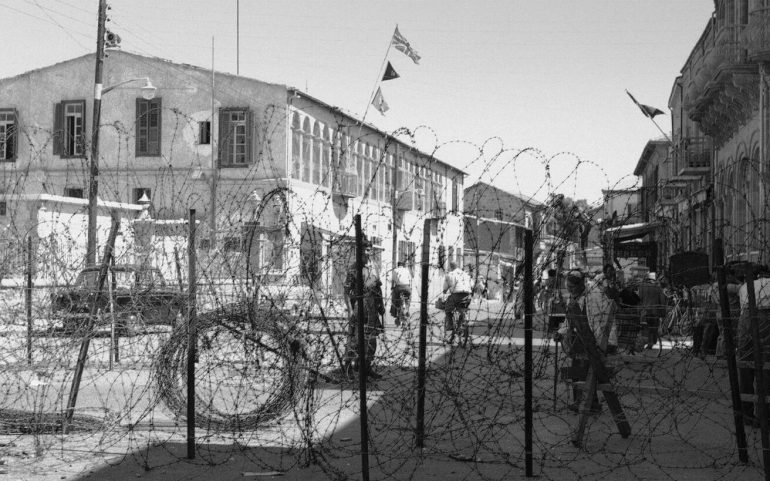It is one of the darkest moments in modern Greek history. It is the moment that the Cyprus In essence, but also formally, it is left to the appetites of "Attila". The junta's decision to withdraw the Greek division from the mainland is the most horrific of the crimes committed by the dictatorial regime.
It is an act of utter betrayal. An act for which even the defenders of seven years can not articulate an elementary contradiction.
And what to say, after all, when he himself dictator Papadopoulos has admitted that the pressure he received from the US to withdraw the Greek division from Cyprus was great and he could not do anything;
That seems to be the hyperpatriotism of the junta. Those who otherwise defended the homeland and did not raise a fly on their sword were ultimately capable only of torturing people in the Security Detention Centers and on the Xeron Islands. In the face of American pressure, they raised their hands.
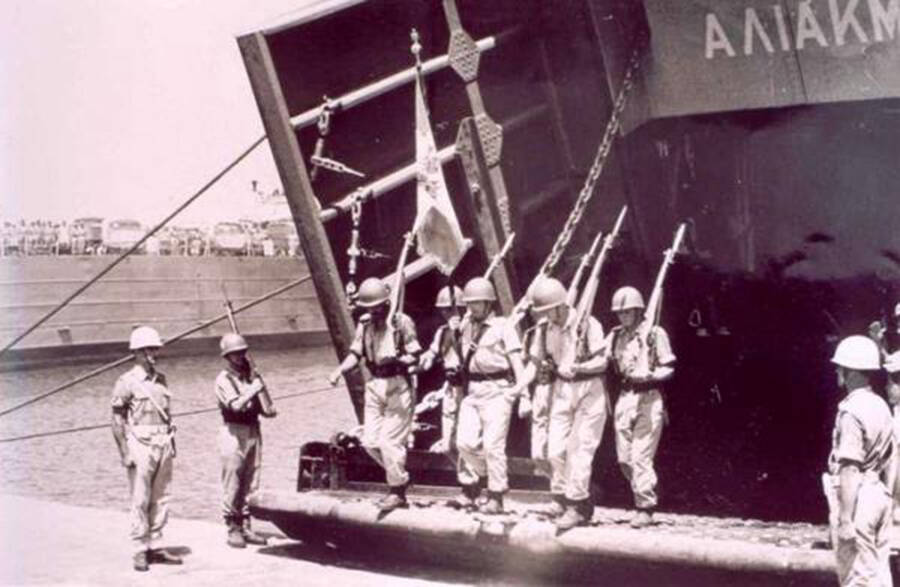
The story essentially begins with the establishment of the independent Cypriot state in 1960, with the agreements of Zurich and London. The guarantor powers are Greece, Turkey and Britain.
The agreements provide in detail the manner of governing the island and especially the rights and obligations of the Greek Cypriot and Turkish Cypriot sides. Regarding the military part, it was decided that the Republic of Cyprus would have an army of two thousand men, of which 60% would be Greek Cypriots and 40% Turkish Cypriots. Initially on the island were developed the ELDYK and TOURDYK, with a force of 950 and 650 men respectively.
From the beginning, however, it seemed that things between the two communities were not working properly and there was no hope that they would work satisfactorily at some point in the future.
Makarios (who essentially falls into the trap of the British) proposes 13 points of revision of the Constitution and provokes a strong reaction from the Turkish Cypriot side. It was the moment when the wick of rapid developments was ignited.
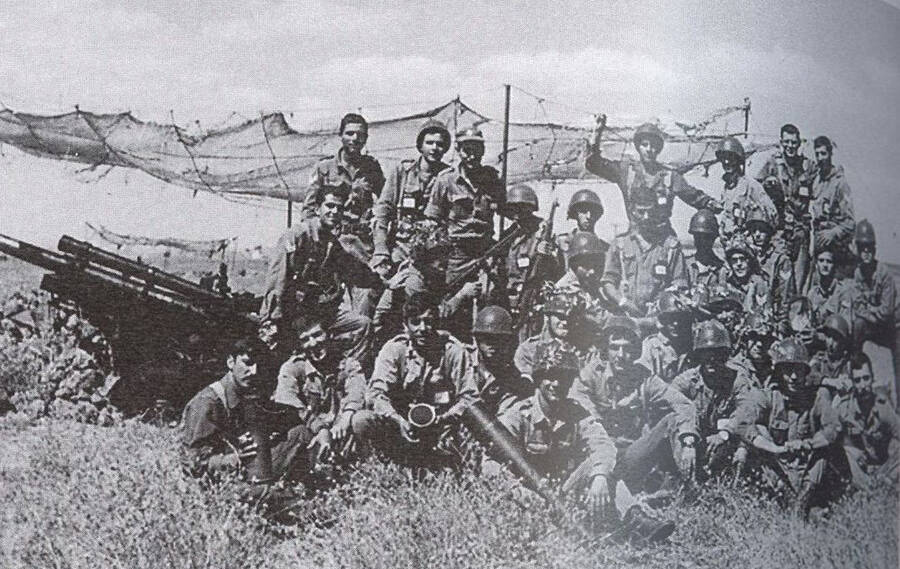
At the same time in Athens his new government George Papandreou monitors what is happening in Cyprus.
The critical date is December 21, 1963, when the Greek side, which has information that the Turkish Cypriots of Nicosia are trading arms with their compatriots outside it, starts checks on suspects. One of these checks does not end well as the Turkish Cypriots refuse, two of them fall dead, and thus begin armed incidents which within a few days take on great proportions.
TOURDYK leaves its camp in order to defend the Turkish Cypriots but occupies strategic points, not accidentally as will be proven years later with "Attila 1". The episodes last until December 28, when they end with the intervention of the guaranteeing forces. That is when what we know today as the "green zone" is created in Nicosia and the UN presence on the island is permanent. Essentially we are talking about an first τυ informal division of the island.
In Athens, the Papandreou government considers that all this was a rehearsal of an invasion by Turkey and decides to send a division of 8.500 men to Cyprus.
Theoretically, this mission took place; secretly, however, it had the approval of the United States and Britain, who did not take kindly to the close relations that Makarios had begun to develop with USSR and wanted to send him a "message".
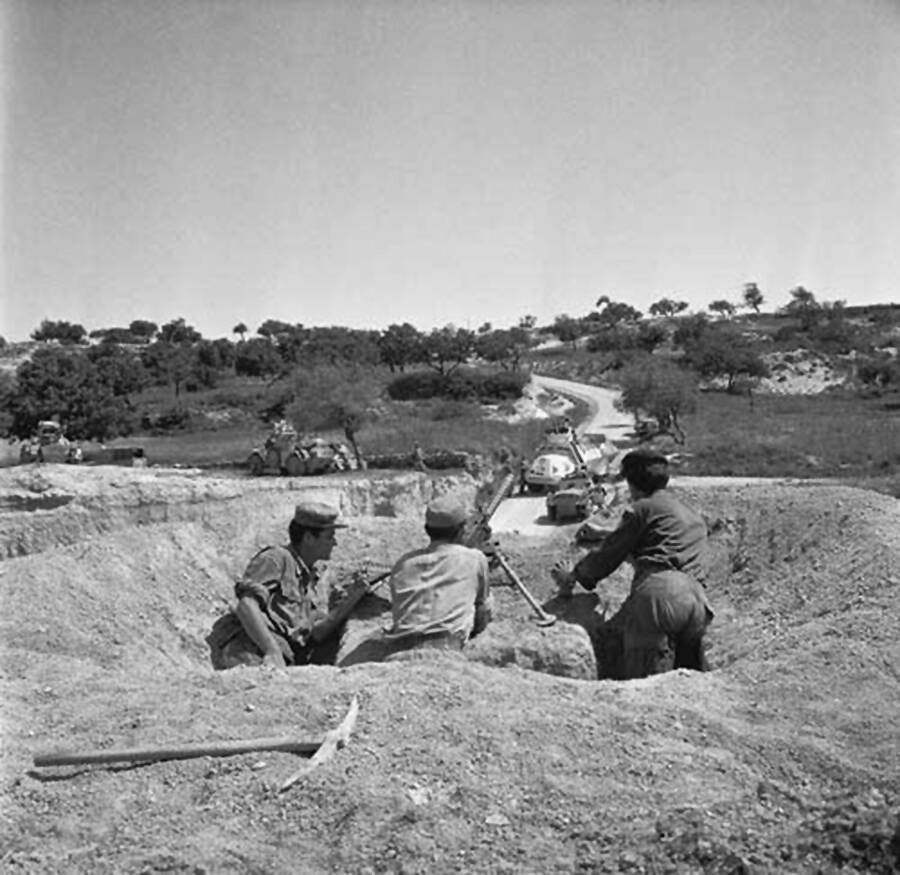
From then on, the balances became even more fragile. The episodes between the two sides were frequent and bloody. These had provoked the reaction of the then US President Lyndon Johnson, who, fearing the involvement of the USSR in the Cyprus issue, appointed the Undersecretary of Defense, Cyrus Vance, as a special envoy and gave him a blank check to handle the issue.
In the meantime Greece the junta has overthrown the democratic regime and taken power.
In November 1967 a new outbreak of tension is created on the island, this time in the village of Kofinou, southwest of Larnaca. There a small paramilitary group of Turkish Cypriots attempted to control the main highway. The response of the Greek Cypriot side was immediate, harsh and disproportionate. After low-intensity armed incidents, he takes action General Grivas which invades with great military force into the Turkish Cypriot enclave. In December 1986, during a debate on the infamous "Cyprus Dossier" in Parliament, the then Prime Minister Andreas Papandreou had said:
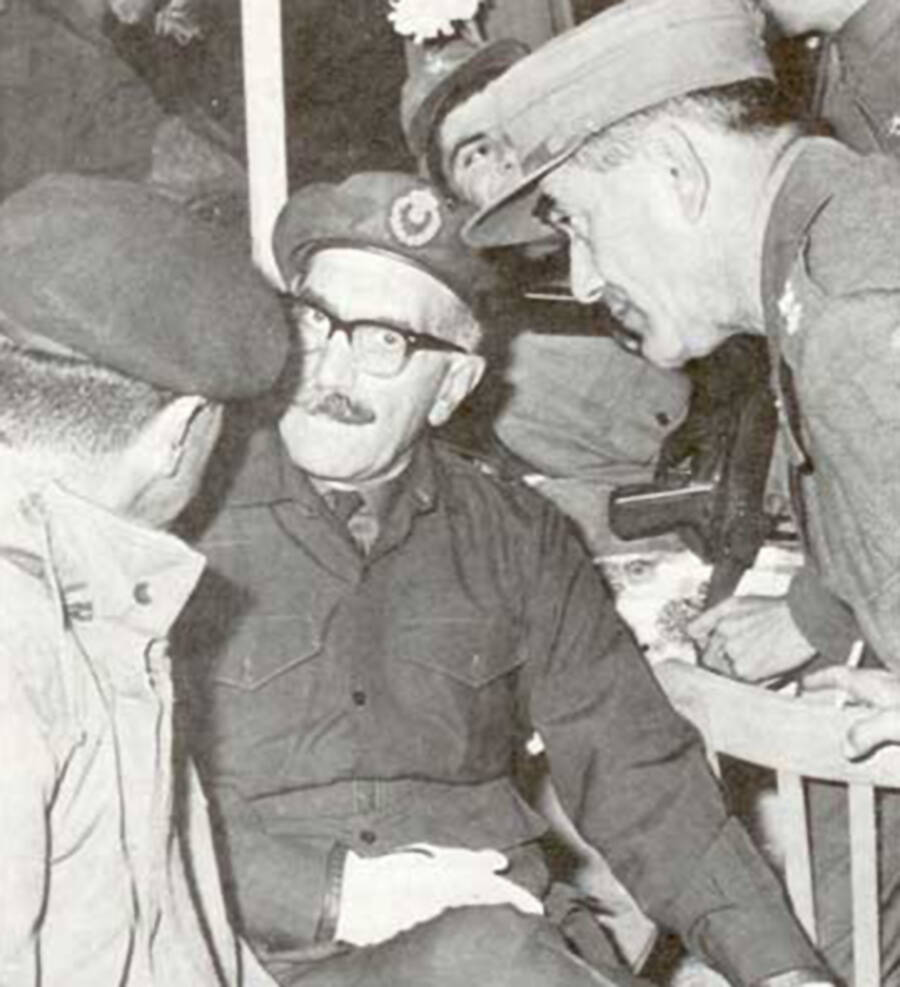
"That operation (of Kofinou), was ordered by the Hellenic Armed Forces Headquarters, by the Greek staff and was led literally every day from Athens. Makarios and the government of Cyprus were in complete ignorance. It was a really big challenge for Turkey. There were massacres and looting. Makarios protested because his government had been ousted. But when the National Guard evacuated the villages of Kofinou and Agioi Theodoroi, the junta propaganda skillfully blamed Blessed».
For his part, Konstantinos Mitsotakis had emphasized in his own position: "And the drama of the Kofinou episodes followed, which were correctly described by the prime minister. I would add that perhaps it was the reaction of the dictatorship and Spantidakis, who wanted to move the case vigorously after the defeat they had suffered (at the Evros talks in September 1967) and the humiliation by the Turks and thus created the episodes. Kofinou, which gave the Turks the opportunity to blackmail. And they blackmailed successfully. It is an aspect that needs to be investigated because that is where the tragedy of Cyprus begins for me ".
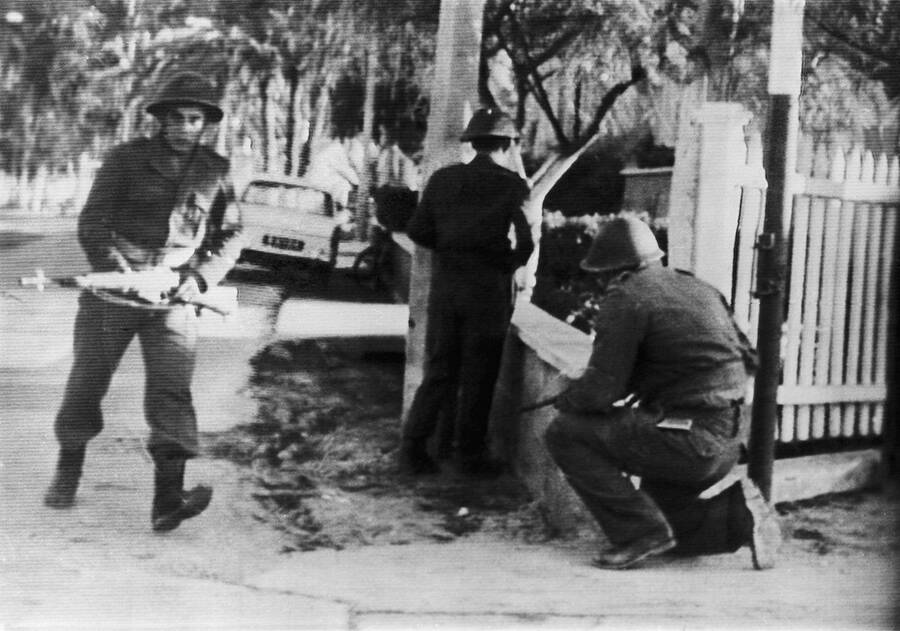
After what happened dramatically, the Turks point the finger at the trigger and threaten everyone and everything. They demand the withdrawal of the Greek military forces from Cyprus. At the same time, Grivas takes the plane (without return) to Athens and Cyrus Vance the corresponding to Ankara where he tries to avert a Greek-Turkish war that seems more likely than ever.
There he learns that the American ambassador to Turkey, together with Turkish Foreign Minister Ihsan Caglagil, have drafted an agreement that includes only Ankara's positions.
Vans would take this text to Athens and would negotiate it with the Greek Foreign Minister (diplomat and former caretaker Prime Minister) Panagiotis Pipinelis, who passed it on to the coup leader Papadopoulos. The leading group of the junta decided to sign this treacherous agreement without having any discussion with Makarios. Only the pro-royal general Spantidakis put up some resistance but Papadopoulos was immobile.
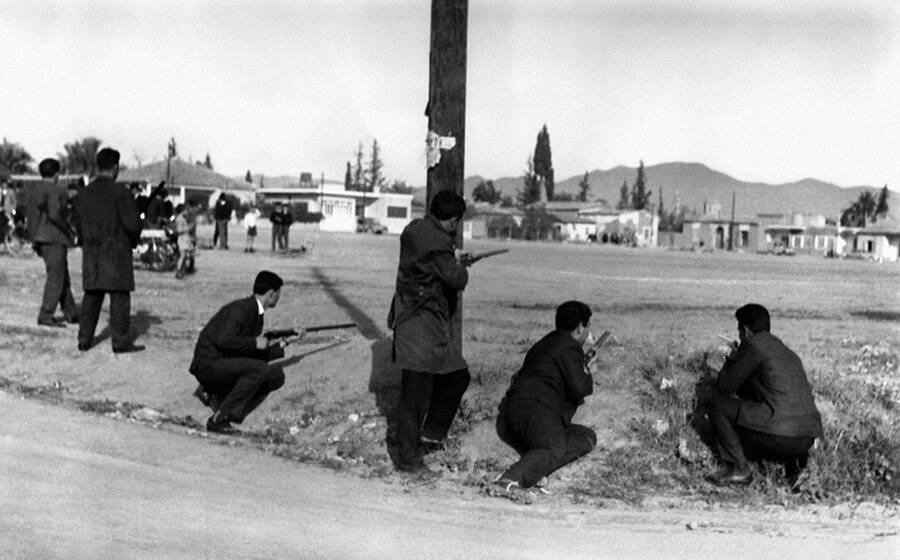
When Makarios was informed by the American ambassador to Cyprus that Athens had signed an agreement which, among other things, provided for the withdrawal of the Greek division, the emblematic president of the main island refused to do so. The obvious goal was to expose her junta that she would be forced to do it herself. At the last moment and after tough negotiations with Vance, Makarios managed to avoid the dissolution of the National Guard. What he failed to prevent was the national tragedy that would come a few years later with the invasion of "Attila" on a virtually defenseless island.
On hearing the news of the withdrawal of the Greek division, George Papandreou with an obvious sarcastic mood stressed: "The Corruption sent the Army of the Nation to Cyprus and the Army brings it back."
"Der Spiegel" wrote on 4/12/1967: "The submission of the Greeks increased the appetite of the Turks. "Every time Mr. Vance visited, the wishes of the Turkish prime minister were presented." Figaro wrote that "The speed with which Greece rushed to accept the Turkish terms is unbelievable."
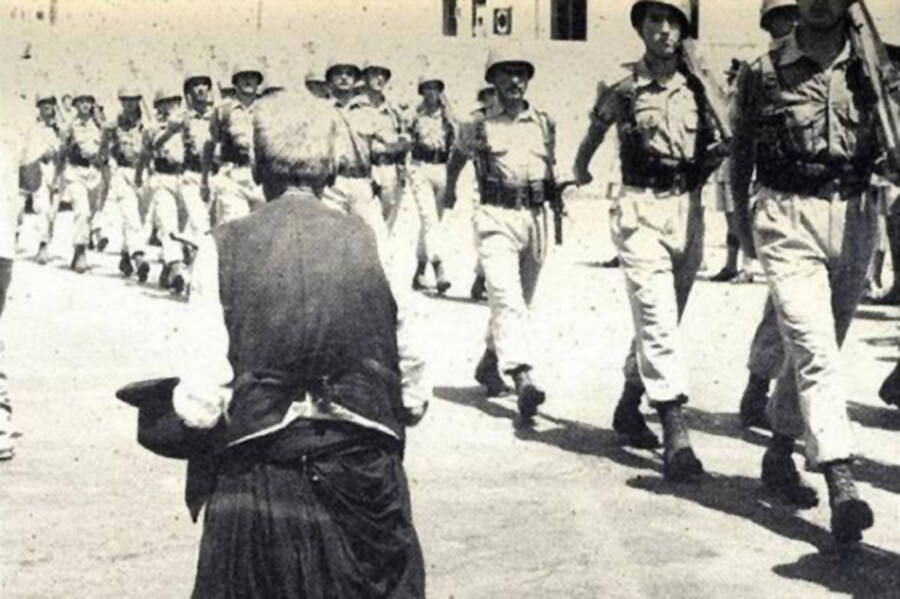
Turkish Prime Minister S. Demirel later told a Greek interlocutor that "I expected that the Greeks would retreat but not that they would be washed away"...
As for the… super-patriot Georgios Papadopoulos, when asked to answer the questions of the parliament about that agreement after first questioning the division's ability to defend himself effectively, he said that he signed it because he wanted to prevent a Greek-Turkish war and because "Vance intervened and everyone else stopped. Representative of the President of the United States… What to do?!
